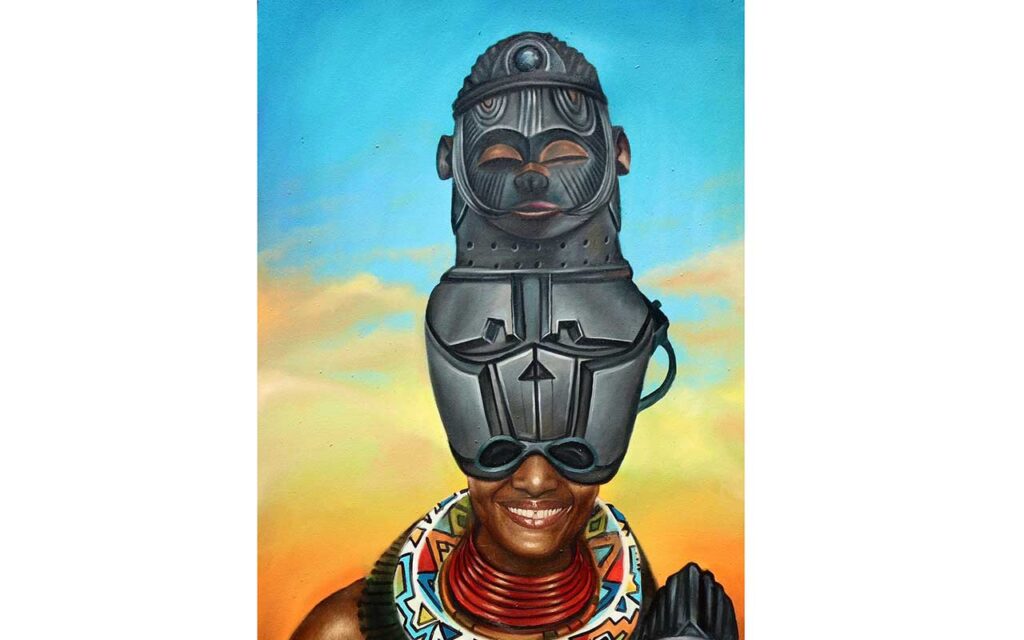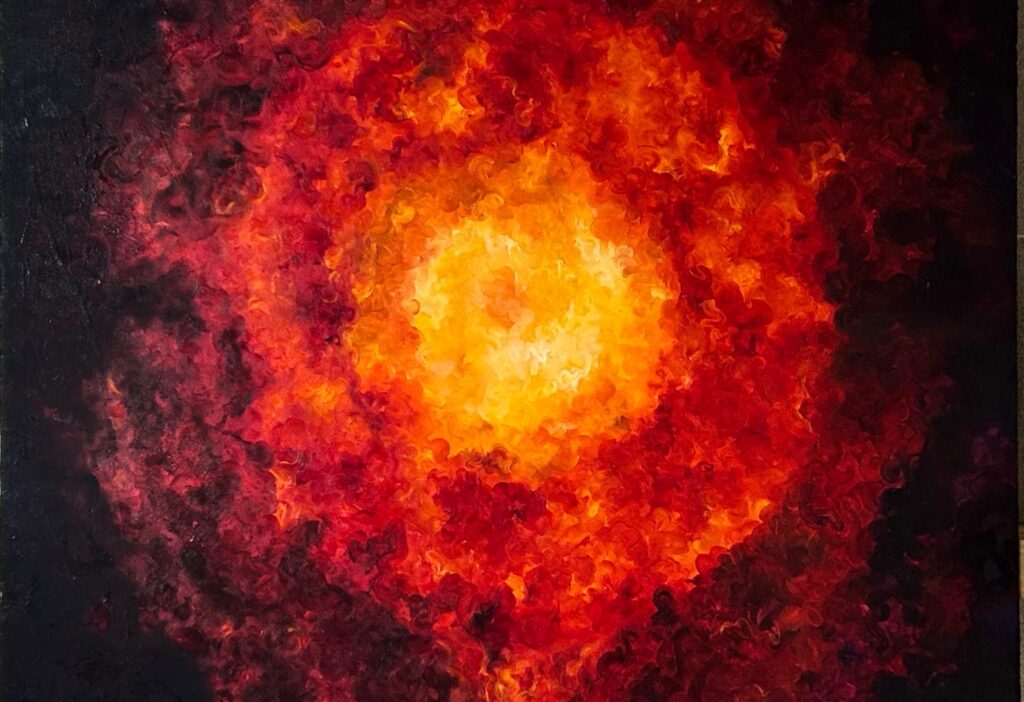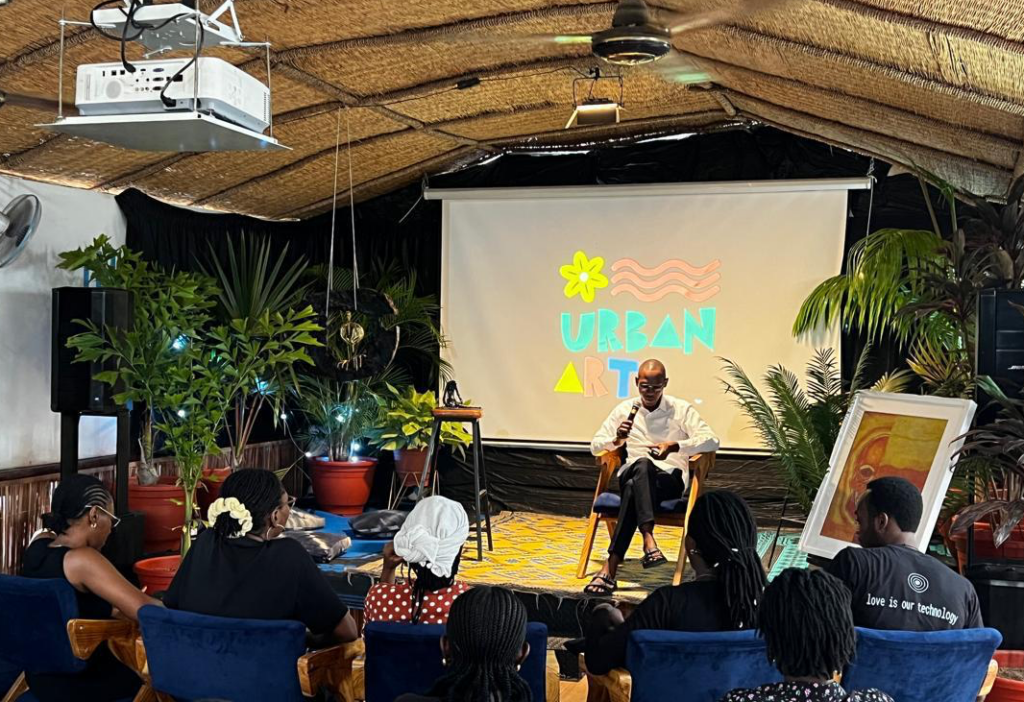
“As he got out of the car, a throng of women converged on him, hoping for some good news, it seemed. He just stood there and wailed, but there was no sound. I felt his pain, as everyone did. All the women broke down again and started wailing. It was too much for me. Tears welled up in my eyes and streamed down my face. I ran back to our sanctuary, numb. For a long time, we were too scared to mention our cousins’ names and stayed away from Margaret Avenue. Okey’s body was never found. The war had come down directly upon us. We had encountered death. It was personal and ugly, and bitter and final. We could not sleep; we felt numb and empty and had nightmares. We saw them in our dreams. To this day, I can still remember the numb emptiness.”
This was how young Uche Nwokedi, seven years old at the time, now a Senior Advocate of Nigeria (SAN), first experienced death in the infamous Nigeria Civil War or Biafran War, depending on which side you belong as narrated in his A Shred of Fear: A Memoir (Narrative Landscape Press, Lagos; 2022). The three Onwdudiwe children were his cousins and playmates. Only the house chores his mother assigned his two sisters – Chinelo and Oby – saved them from the bomb dropped from the air that sent the Onwudiwe children – Okey, Ifeoma and Chuma – to their early death. Schools had been shut, and the only articles of entertainment and pastime for the children were books and music. The Onwudiwe children had gone to Pound Road in Aba to buy themselves some books and records. That was how tragedy struck when a warplane dropped a bomb on that stretch of commercial road and flattened both humans and buildings to smithereens.
That was Aba in 1968 when the war was at its most intense and the federal forces were pushing hard into Biafran enclave. Nwokedi first came face-to-face with the war while they were in class at Sancta Maria, a school run by nuns. The siren warning of air raids had let off and then followed the fighter planes dropping their deadly consignments of death. Having been drilled before hand, everyone immediately sprinted to the trenches dug at the back of the school. But the shock of the sirens and the actual bombs banging were unforgettable to young Nwokedi and his schoolmates. That was how the war metamorphosed from mere rumours of ‘pogroms’ and ‘secession’ to the reality of war that would truncate the lives of millions for 30 long months, with over three million dead. Although born into an elite and privileged family, the war found the young Nwokedi unprepared just as everybody else for the discomfort, dislocation and death it brought.
First was the ceaseless flow of those who had escaped by the whiskers and were running back from the North and other parts of Nigeria into Igboland with tales of woes and destruction. Many had nowhere to stay; they became the first to be rehabilitated in refugee camps that started springing up in Aba and elsewhere. It will not be long before the Nwokedis also found themselves running from the path of war bullets and bombs deeper into the interior to escape the Nigerian Army’s coming war machine. Their first stop was at Uga, then they moved to Umuchu where they stayed for a long while before moving to Ukpor from where they would return to their ancestral home at Achalla at the end of the war for the needed healing before launching out again into the Nigeria they had left and fought in a new nation that did not materialise.
Nwokedi’s father, a lawyer, politician and socialite in Aba in the 1960s, would, like other educated men, join Biafra war efforts as soldier, administrator and diplomat while the mother, a schoolteacher and seamstress, would also join in managing the many refugee camps as they moved from one place to another in the internal displacement that happened inside Biafra. As the father kept moving and carrying out his official duties of war efforts and only showing up once in a while, Nwokedi’s mother became the stabilising fortress in the homefront who ensured some form of normalcy and informal education for the children just as she was also contributing to the war effort.
A Shred of Fear is a memoir borne out of a fertile childhood memory and imagination, as Nwokedi reached deep into his reservoir to dredge up this unforgettable but nightmarish encounter that wiped out many of his age mates at the time. But he survived to tell the horror tale with a bit of hindsight on what might have been had the principal actors behaved differently. And he wonders if succeeding generations, inheritors of that nightmare, have learnt any lessons from that experience or were they still blundering along that same worn path of errors?
Nwokedi’s A Shred of Fear comes some 62 odd years after that inglorious war. But it’s a book that has company in keeping alive the unburied ghost of the Nigerian Civil War, and why it will remain a war that will be fought many years to come until a national, official closure is brought to it and all those who still fight it one way of the other in their psyche find respite. Not least a personage still battling that war is Nigeria’s President Muhammadu Buhari, a principal actor in the theatre of war, but who is yet to put the war ghosts or nightmares to rest long after it ‘officially’ ended. His recent ‘dot in the circle’ statement in reference to the South-East region strongly suggests a man still stuck in the trenches of that war as a combatant. Chimamanda Adichie’s Half of a Yellow Sun published in 2007, Chinua Achebe’s swansong, There Was a Country in 2012, Onuorah Nzekwu’s Troubled Dust, also in 2012, and Chido Onuma’s We Are All Biafrans in 2018 are all pointers to a war whose declared ‘No Victor, No Vanquished’ mantra has turned out a lie as Nigeria’s reality over 60 years after indicates otherwise. So also the three ‘Rs’ – Reconciliation, Rehabilitation and Reconstruction – a bigger sham, as no effort was and has been made at any of these lofty objectives at unifying the country. Only recently, a British journalist, Jonathan Derrick, who worked on West Africa magazine during the war, published Biafra in the News. Frederick Forsyth similarly published copiously during and shortly after the war, with Emeka, which is on the personality of the Biafran warlord, Chukwuemeka Ojukwu, as subject, and others like The Biafra Sory: The Making of an African Legend.
At the end of the war, it came down to twenty pounds (£20)! That was the price of the war to anyone in Biafra who had a bank account in Nigeria before the war. Nigeria’s federal government kept the balance, no matter how much.
Nwokedi aptly captures this injustice thus: “At the end of the day, it came down to twenty pounds. That was the price of the war, even though the real cost was far greater.”
Even though the Nwokedis had little time to catch their breath before they began the arduous task of rebuilding their lives back in Nigeria, they heeded the call of the Ndokedi patriarch, also known as Nna Anyi, as they all returned to their ancestral home of Achalla. Nwokedi describes this moment at the end of the war and the possibility of a new dream poignantly: “And so it was that Nna Anyi gathered his entire family around him at the end of the war. It was from his compound in Achalla that the healing and rebuilding process started for the extended Nwokedi family… It was clear that each and everyone of them was counting the cost of the war and the price they had paid with pain and suffering. Looking back now, I imagined they must have been worried when they pondered their future in Nigeria.”
But they rose to the challenge of reintegrating into Nigeria with stoicism if with a little trepidation. But the Biafran national anthem frontline nationalist Dr. Nnamdi Azikiwe composed before he and Ojukwu parted ways still sat solidly in the heart of all Biafrans as they made their way back into Nigeria, with the last two lines most telling: “But if the price is death for all we hold dear,/ Then let us die without a shred of fear.” It’s from here that Nwokedi takes the title for his memoir, A Shred of Fear. Indeed, there was nothing to fear having emerged from one of Africa’s most brutal wars: “The end of the Biafran War presented Papa and his generation with a Nigeria different from the one they had grown up in or inherited upon independence,” Nwokedi writes. “They were now faced with a whole new set of challenges. But they were not daunted. They persevered. Accepting all the challenges Nigeria presented, they faced them down stoically. The post-war rhetoric meant nothing to Papa and his generation. They shrugged off the loss of the war and carried on with their lives as best they could. One day they were Biafrans fighting for their freedom and survival, the next day, they were back in Nigeria in somewhat diminished circumstances – the vanquished – worst off than they had been before the war.”
The generation after Pa Nwokedi’s did no less. They too shrugged off the defeat their fathers had suffered and began to carve a path for their own to success in a Nigeria that has remained inviolable to progress, as Nwokedi testifies, “We were influenced by the calm and confident manner in which they (their parents) carried on after the initial shock of defeat. They were a resilient generation. They showed no fear or regret, and so we too were no longer frightened by the defeat of Biafra…”
For a war that has no official closure for those who suffered and died, A Shred of Fear and many other acts of reminder are what you keep getting. Rwanda had its genocide in 1994. A memorial was erected to give closure to those who suffered. So too the horrors of Nazi Germany that gave birth to Holocaust memorials. Where’s Biafra memorial? A Shred of Fear will continue to be sad reminder of our national remiss towards that horrendous war. Nwokedi’s A Shred of Fear is a piece of timeless work that had lane buried in the heart of a boy all through the years long turned man and which has now found anchor. Nwokedi is to be commended for this remarkable work of recall of a chilling past still haunting the soul of a nation.







